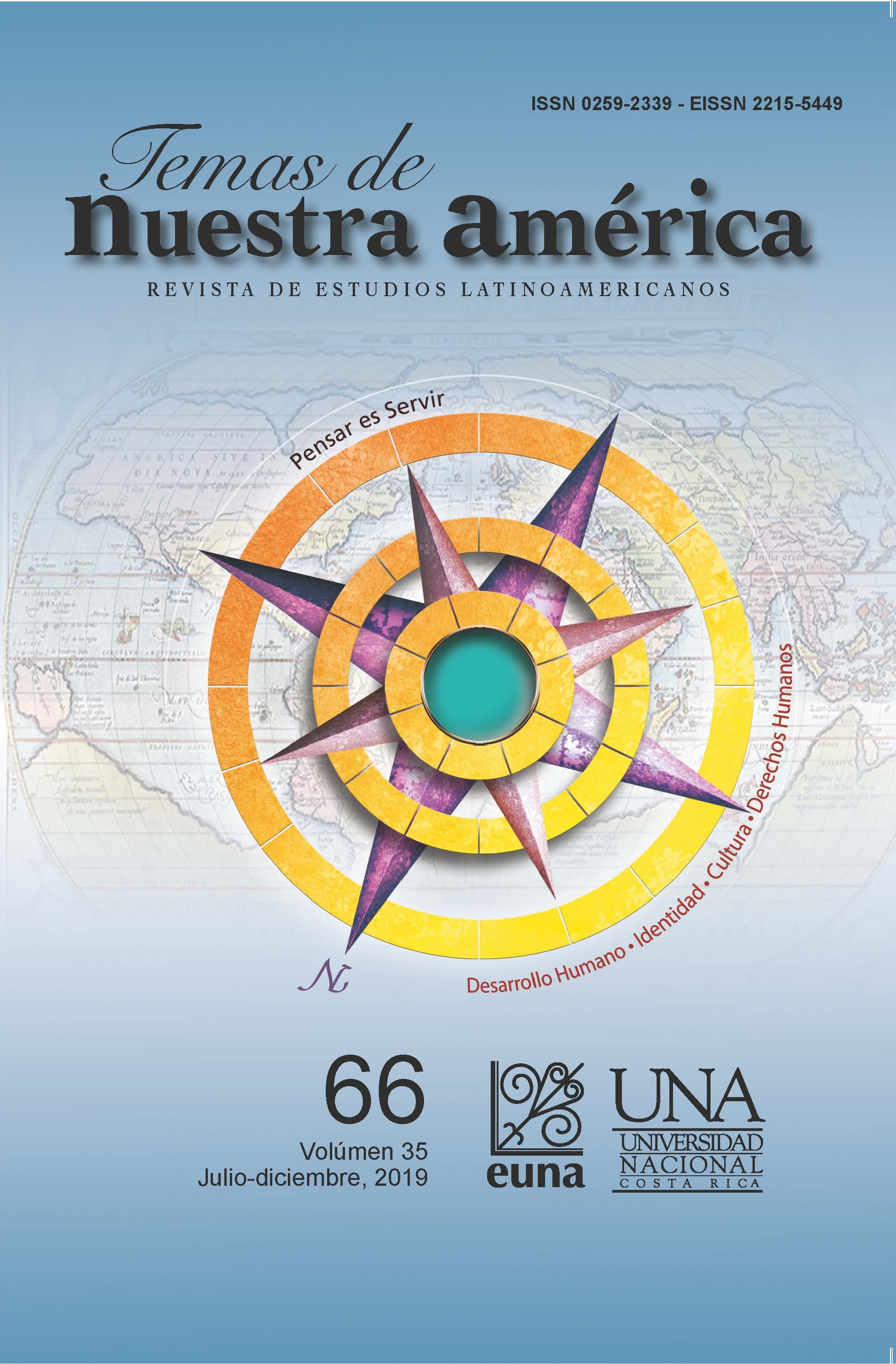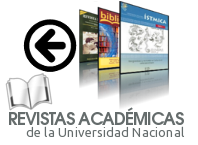The literature of northern costa rica. a landmark case: Francisco Rodríguez Barrientos
DOI:
https://doi.org/10.15359/tdna.35-66.1Abstract
The North Region of Costa Rica has been little studied in sociocultural terms. Much less in literary terms. However, despite its low age and development, the production of that region in terms of volume and literary variety is notorious. There are consolidated writers who radiate not only to the rest of the country, but to the Central American region and beyond. Within that production stands out the work of Francisco Rodríguez Barrientos from San Carlos, both for its breadth of genres and for the theme. Rodríguez Barrientos, as far as is known, is the Costa Rican and Central American writer who, until now, has produced the most extensive and profound work in a genre rarely visited by national and contemporary writers: the aphorism. In addition, in recent years he has released part of his narrative production, which amazes not only for its creative rigor, but for its thematic and scriptural breadth: two books of narrations, three novels and an unpublished trilogy. This paper aims to analyze this work, especially the narrative, privileging a novel of historical characteristics (The thirst for days) in the framework of northern, Costa Rican and Central American literature, as a pioneering contribution in some genres and as an aesthetic approach and broad spectrum that places the northern region on the national literary map. This is one of the most visible and daring contributions in terms of strengthening their identities and their sociocultural development.
References
Aguilera, G. M. (1975). Breve historia de todas las cosas. Buenos Aires: Ediciones la Flor.
Anderson, B. (1993). Comunidades imaginadas. Reflexiones sobre el origen y la difusión del nacionalismo. México, D.F., Fondo de Cultura Económica.
Bhabha, H. (2010). DisemiNación. Tiempo, narrativa y los márgenes de la nación moderna pp. 385-421. En Nación y narración. Entre la ilusión de una identidad y las diferencias culturales. Homi k. Bhabha (comp.), Buenos Aires: Siglo Veintiuno Editores.
Campos, G. G. (1998). Marisol sí sabe por qué te quiere, Ernesto. San José: EUNED.
Corrales, A. A. (1995). Tranvía negro. San José: Alambique.
Corrales, A. A. (1999). Los ojos del antifaz. San José: Ediciones Perro Azul.
Corrales, A. A. (2005). Balalaika en clave de son. San José: Editorial Costa Rica.
Corrales, A. A. (2015). Lina. San José: BBB producciones.
Dobles, F. (1967). En el San Juan hay tiburón. San José: Editorial L´Atélier.
González, L. M. (1979). Poesía para niños. San José: Departamento de Publicaciones. Ministerio de Cultura, Juventud y Deportes.
Hurtado, G. (2002). El libro brujo. San José: Editorial Costa Rica.
López, L. (2018). Otoño sin tabúes. San José: Mirambell.
Rodríguez, F. (1996). Sobrevivencia del agua. San José: Alambique.
Rojas, F. (1997). Avatares. Ciudad Quesada: Imprenta San Carlos.
Romano, C. (2017). La sed de los días. San José: BBB Producciones.
Romano, C. (2018). Sombra errabunda. San José: BBB Producciones.
Rossi, A. (2002). Limón blues. San José: Alfaguara.
Rossi, A. (2007). Limón reggae. San José: Editorial Legado.
Sánchez, J. (1972). La colina del buey. México, D.F.: Organización Editorial Novaro.
Sánchez, J. (1987). La isla de los hombres solos. México, D.F.: Grijalbo.
Vega, Á. (2012). Emma. San José: Lara Segura & Asociados.
Downloads
Published
How to Cite
Issue
Section
License
Esta obra de Revista Temas de Nuestra América está bajo una Licencia Creative Commons Atribución-NoComercial-SinDerivar 4.0 Internacional.
Cualquier permiso que trascienda dicha licencia, debe solicitarse por escrito a la persona directora de la Revista










